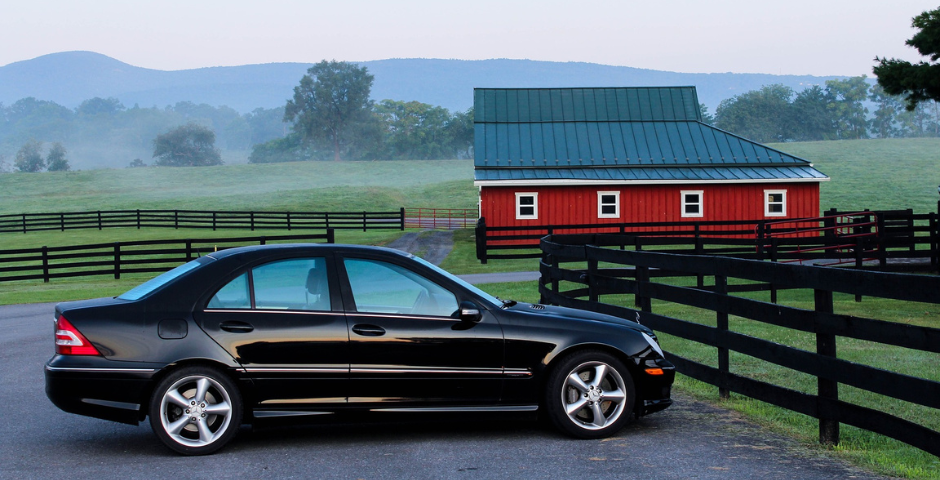Parking - one of the more tedious aspects of life and yet one that is absolutely integral to most of our day-to-day lives.
According to an article on Mother Jones, there are about a quarter of a billion cars and light vans in the USA and roughly one billion parking spaces to cater to all those vehicles. Applying the same ratio for Ireland (with about 2.5 million cars) should indicate that there must be around ten million spaces - give or take - across the country. Stop and consider that figure for a few moments.
In reality, that figure is almost certainly lower for a variety of reasons. The U.S. is far more car-dependent than Ireland, while public transportation is far less widespread. While there’s no way of knowing precisely how many car parking spaces are in Ireland, most will agree you see plenty of them, often lying vacant. So what might the future of parking be like in Ireland?
1. Parking in Ireland
Let’s just take that figure of ten million car parking spaces and run with it for a while. All put together, that would create an area of approximately 110 square kilometres sq - roughly the same size as Dublin City. That’s a lot of space and a lot of space which lies vacant a lot of the time.
They also represent a significant cost to society. Large retail spaces, such as shopping centres, will often allocate as much space for parking as the retail units themselves. Office buildings sometimes come with an underground car park – which almost always remains empty at night and the weekend.
According to HWBC Market Outlook, an average parking space in the centre of Dublin will set a company back €4,000 per year. Multiple that by x amount of employees and quite quickly your company’s parking bill can easily balloon into the hundreds of thousands of euros.
And that’s before we even start to look at an event as seismic as the Covid-19 pandemic which shattered the status quo of how we work. With almost everything shuttered for months, the number of car parking spaces - along with vast amounts of office space - went completely unused.
Even now, after the worst seems to have passed, there is a sense of unease about what this ‘new normal’ might look like. With so many people still working from home or splitting their time between the office and the kitchen table, do we really need this number of parking spaces?
2. Big Earners
Corporate parking may be hugely expensive, but when it comes to public parking it can be a gold mine. In total, parking charges in Ireland bring in more than €360 million per year, with local authorities taking around €115 million, private car parks making roughly €80 million, railway stations and transportation hubs making €70 million, and shopping centres totalling €50 million.
This money is divided between the owners of the spaces and the government but it’s thought that roughly €150 million arrives in the exchequer each year thanks to car park spaces. Now, €150 million is nothing to sniff at, but when you consider the total expenditure of the Irish government forecasted for 2023 is just shy of €100 billion, it suddenly doesn’t seem like that much.
3. To the Future
The mad rush to fill our world with car parking spaces primarily occurred in the second half of the 20th Century when our love of the automobile really exploded and was matched by much more affordable prices.
Today, there are a record number of cars in Ireland, but have we reached the tipping point and what does this mean for our vast array of parking spaces?
With driverless cars coming down the road (pun very much intended) and other developments including Uber and Lyft, many countries – including Ireland – may find that we have drastically over-engineered the amount of parking space needed in the future.
Uber announced last year that its drivers are making more than one million trips a day – could the millennial generation decide that they no longer need a car and don’t want to tie up significant capital in buying and maintaining a vehicle?
Services such as the Dublin City website showing available car spaces may become a curious anachronism for future generations who have either eschewed the car or use driverless cars which conveniently take themselves elsewhere to ‘lay up’ until needed again.
4. Car Insurance
While it’s impossible to predict the future, it seems likely that our current trend for cars and the necessary spaces to accommodate them will come to an end at some point in the near to mid-future. It’s unclear where we go from here, but with new technology, along with profound changes in social behaviour that comes with something like the Covid-19 pandemic, it seems likely that there are going to be major changes in the coming decades.
But that might be getting a little ahead of ourselves. Exciting changes may be ahead, but for the time being cars and other vehicles still play a fundamental part in our lives. Make sure you have the right kind of car insurance with 123.ie, especially as we begin to head into the colder months. The world is changing rapidly and at times it can be difficult to keep up, but for the time being, let’s focus on the here and now.





